Search Results
Showing results 241 to 260 of 385
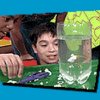
Flinker
Source Institutions
In this activity, learners make a foam packing peanut "flink"--neither float away nor sink--in water. Learners experiment with materials to make a Flinker that "flinks" for 10 seconds.
Mix and Match
Source Institutions
In this optics activity, learners explore color by examining color dots through colored water and the light of a flashlight.
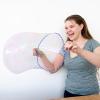
Bubble Tray
Source Institutions
In this activity, learners use simple materials to create giant bubbles.

Ready, Set, Fizz!
Source Institutions
In this activity, learners explore the chemical reaction between water and effervescent antacid tablets. This hands-on activity models how a material can act differently when it's nanometer-sized.
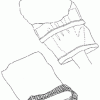
How Animals Stay Warm
Source Institutions
In this quick activity, learners explore how blubber protects animals from the cold by making a "blubber mitt." Using cooking shortening, two zip-top sandwich bags, and duct tape, learners simulate bl
Why is the Sky Blue?
Source Institutions
In this activity, learners create a "mini sky" in a glass of water in a dark room.
Guiding Light
Source Institutions
In this optics activity, learners use glass and water to demonstrate total internal reflection (TIR).
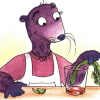
Veggies with Vigor
Source Institutions
In this activity, learners try to revive wilted celery. Learners discover that plants wilt when their cells lose water through evaporation. Use this activity to introduce capillary action.
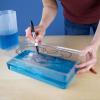
Exploring Earth: Rising Sea
Source Institutions
“Exploring Earth: Rising Sea” is a hands-on activity demonstrating ways to use topographical mapping techniques to track changes in sea level. The activity is connected to current NASA research.

Hollandaise Sauce: Emulsion at Work
Source Institutions
In this activity, learners follow a recipe to make hollandaise sauce. Learners discover how cooks use egg yolks to blend oil and water together into a smooth mix.
Yeast Balloons
Source Institutions
Visitors observe a bottle with a balloon attached around the mouth. The bottle contains a solution of yeast, sugar, and water.
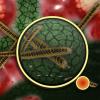
Dirt Life
Source Institutions
After an interest-generating discussion about "dirt" and microbes, learners select and collect soil samples from a variety of locations (schoolyard, home, etc.).

Make Your Own Sea Otter
Source Institutions
In this activity about sea otters, learners make their own "otter whiskers" and use them to find objects underwater.
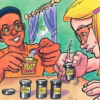
A Feast for Yeast
Source Institutions
In this activity on page 6 of the PDF (Get Cooking With Chemistry), learners investigate yeast. Learners prepare an experiment to observe what yeast cells like to eat.
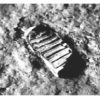
Regolith Formation
Source Institutions
In this three-part activity, learners use food to determine the effects of wind, sandblasting and water on regolith (dust) formation and deposition on Earth.
Musical Coathanger
Source Institutions
In this activity, learners turn an ordinary metal coat-hanger into a (very quiet) musical instrument.
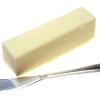
Conduction Countdown
Source Institutions
In this quick SciGirls activity (page 1 of the PDF under SciGirls Activity: Doghouse Design), learners will be introduced to the concept of thermal conductivity.
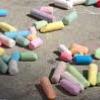
Sidewalk Chalk
Source Institutions
In this chemistry activity, learners witness an exothermic reaction, while making their very own, completely usable sidewalk chalk. This is also an excellent activity for exploring color mixing.

Chemical Breath
Source Institutions
This is a chemistry lab activity about solutions (page 7 of the PDF). Learners see firsthand how chemicals in a solution can combine to form an entirely different substance.

Vanishing Rods
Source Institutions
This is a quick activity/demonstration that introduces learners to the concept of index of refraction. Learners place stirring rods in a jar of water and notice they can see them clearly.
